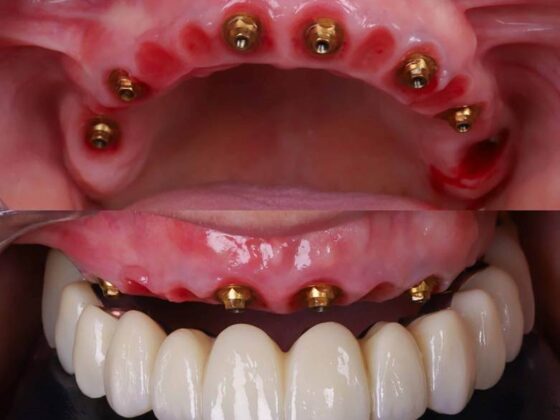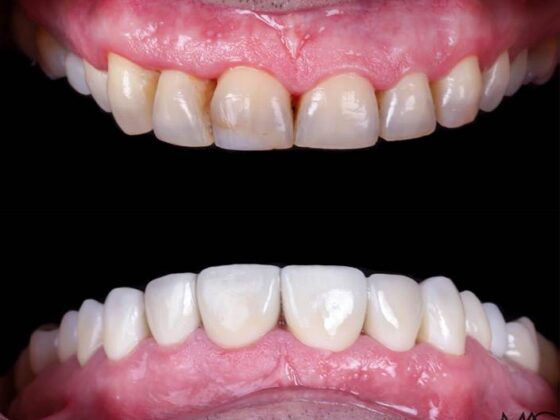The prospect of restoring a healthy, confident smile with dental implants is exciting. For many, they represent a life-changing solution, offering unparalleled stability, aesthetics, and functionality compared to traditional tooth replacement options. However, the journey to a successful and long-lasting dental implant can be fraught with common pitfalls if not approached with careful consideration and proper guidance. Understanding these mistakes and how to avoid them is crucial for anyone considering this significant investment in their oral health and overall well-being.
This article will delve into the most frequent missteps individuals make when pursuing and maintaining dental implants, providing actionable insights to ensure you achieve the best dental implants outcome possible.
The Importance of Informed Decision-Making
Choosing to undergo dental implant surgery is a significant decision. It’s not merely about replacing a missing tooth; it’s about investing in a long-term solution that integrates with your body and impacts your daily life. An informed decision begins with thorough research and understanding of the process, potential risks, and long-term care requirements.
Mistake 1: Skipping Comprehensive Consultations and Examinations
One of the most critical errors people make is rushing into treatment without a comprehensive consultation. A reputable dental professional will conduct a thorough examination, including 3D imaging (like CBCT scans), to assess bone density, gum health, and the precise location of nerves and sinuses. This detailed assessment is vital for planning the implant placement and identifying any potential complications.
- Actionable Tip: Don’t settle for a quick look. Insist on a detailed examination and ask for a clear explanation of your oral health status and how it impacts the implant procedure. A well-planned approach is key to achieving the best dental implants.
Mistake 2: Prioritizing Price Over Quality and Experience
While cost is always a factor, choosing a dental provider based solely on the lowest price can lead to serious long-term issues. Dental implant surgery is a complex procedure that requires specialized skills, experience, and high-quality materials. Substandard implants or inexperienced practitioners can lead to complications such as implant failure, infection, or nerve damage, ultimately costing more in corrective treatments.
- Actionable Tip: Research the credentials, experience, and patient reviews of potential dental professionals. Inquire about the types of implants and materials they use. Remember, investing in quality upfront often saves money and discomfort down the line. A successful outcome often hinges on the expertise of the clinician for the best dental implants.
Avoiding Pitfalls During the Treatment Phase
Once you’ve chosen your dental professional, the treatment phase itself presents opportunities for common mistakes. Adhering to pre- and post-operative instructions is paramount for successful integration and healing.
Mistake 3: Neglecting Pre-Operative Preparation
Your dental professional will likely provide specific instructions for preparing for your implant surgery, which may include dietary restrictions, medication adjustments, or antibiotic prescriptions. Ignoring these instructions can increase the risk of complications, such as infection or poor healing.
- Actionable Tip: Follow all pre-operative instructions diligently. If you have any questions or concerns about medications or your health status, communicate them openly with your dental professional well in advance of your procedure.
Mistake 4: Not Adhering to Post-Operative Care Instructions
The period immediately following implant placement is crucial for osseointegration – the process where the implant fuses with the jawbone. Failure to follow post-operative instructions regarding diet, oral hygiene, and activity levels can disrupt this delicate process, leading to implant failure. For instance, putting too much pressure on the implant too soon can prevent proper healing.
- Actionable Tip: Take post-operative care seriously. Stick to soft foods as advised, avoid smoking, and meticulously follow all oral hygiene instructions. Attend all follow-up appointments to allow your dental professional to monitor healing progress.
Long-Term Maintenance and Care
Even after successful integration and restoration, the journey with your dental implants isn’t over. Long-term care is essential to ensure their longevity and prevent complications.
Mistake 5: Poor Oral Hygiene Practices
While dental implants themselves cannot get cavities, the surrounding gum tissue is susceptible to peri-implantitis, an inflammatory condition similar to gum disease that can lead to bone loss and implant failure. Neglecting regular brushing and flossing is a surefire way to invite this problem. Studies show that patients with poor oral hygiene are significantly more prone to peri-implantitis.
- Actionable Tip: Maintain an impeccable oral hygiene routine, including brushing twice daily, flossing, and using an antimicrobial mouthwash as recommended. Specialized brushes or interdental cleaners may be necessary for cleaning around implants. This is vital for maintaining the best dental implants.
Mistake 6: Skipping Regular Dental Check-ups
Just like your natural teeth, dental implants require professional monitoring. Regular check-ups and professional cleanings are essential for detecting early signs of problems like peri-implantitis, ensuring the integrity of the implant restoration, and addressing any bite issues that might put undue stress on the implant.
- Actionable Tip: Schedule and attend all recommended follow-up appointments with your dental professional. They have the tools and expertise to spot issues before they become serious problems, protecting your investment in the best dental implants.
Conclusion
Dental implants offer a remarkable opportunity to restore oral function, aesthetics, and confidence. However, achieving and maintaining the best dental implants requires a proactive and informed approach. By avoiding common mistakes such as inadequate consultations, prioritizing price over quality, neglecting pre- and post-operative instructions, and failing to maintain diligent oral hygiene and regular check-ups, you can significantly increase the likelihood of a successful, long-lasting outcome. Your journey to a renewed smile is an investment, and by taking these precautions, you ensure that investment pays dividends for years to come.
About the Author:
The author is a passionate advocate for oral health and a seasoned dental professional with over a decade of experience in restorative and cosmetic dentistry. With a commitment to patient education, they believe in empowering individuals with the knowledge to make informed decisions about their dental care. Their expertise spans a wide range of dental procedures, always prioritizing patient comfort and long-term success.











